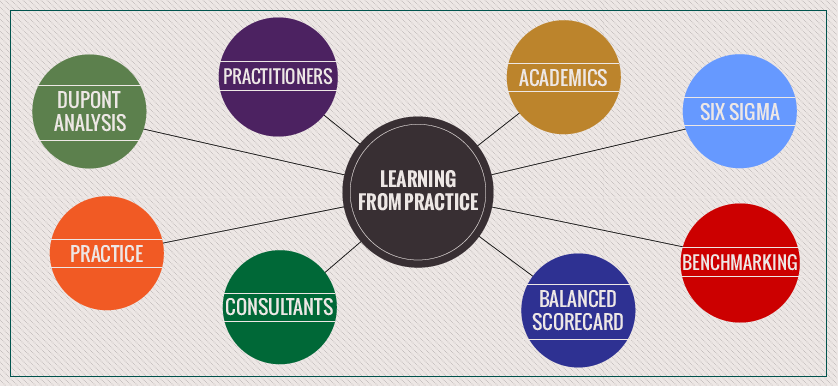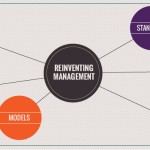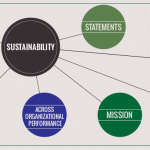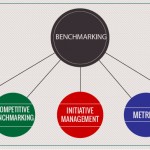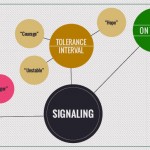The importance of learning from practice
smartKPIs.com Performance Architect update 16/2010
DuPont, Toyota, Xerox, Analog Devices, Motorola…
What do they have in common?
Abstract reasoning and introspection enabled humans to advance scientific knowledge at an ever accelerating rate over the last 2500 years. As opposed to other natural sciences such as physics and chemistry, human organization or administration is more loosely defined, some considering it a science and others an art. However, both proponents of management as a science and as an art agree on its ultimate function – the one of getting things done or accomplishing desired goals.
While administrative science is one of the oldest fields of human inquiry, it is still behind in terms of maturity and impact, especially when compared to other fields. Scientific management is less than 100 years old and reporting the level of advancement in this field to others, one might consider it as being in its embryonic stage. It is ironic, as it is perhaps one of the most important aspects of human life – how as people on Earth we organize ourselves to live harmoniously and keep a balance between so many conflicting forces and priorities at so many levels.
So what can be done to accelerate the progress of administrative science, better known in practice as management, at both theoretical and practical level?
While there are many avenues to be explored, one of them is simple and with a considerable impact on both short and long term: Learning from practice.
Over time, administrative science has been driven by 3 main categories of contributors:
- Academics – researchers employing rigorous academic research methods.
- Consultants – commercial entities providing expert advice to challenges faced by practitioners.
- Practitioners – business professionals that apply in practice principles of management to achieve desired results.
A key ingredient for speedy progress in management is cross-polenisation of ideas. That is exchanging opinions, learning and trying new approaches and sharing results, to contribute collaboratively to the body of knowledge. However, each of the three categories of contributors has certain limitations in terms of their contribution to this process:
- Academics – sound academic research is slow and faces many challenges in terms of data availability and quality.
- Consultants – as profit oriented businesses, generally the main purpose is profit generation by deploying services. The emphasis on Research and Development in management consulting organizations is inconsistent. Even when it is actively pursued, results are often influenced by marketing and revenue imperatives.
- Practitioners – due to the ever-increasing demands of today’s fast-paced business environments, many of them have difficulties keeping up to date with professional development. Allocating time to activities such as research, documenting and sharing findings or even sharing opinions is mostly an exception rather than a rule.
For things to change, each of contributors from each of these categories needs to put more efforts both individually and collectively. Ultimately the most important category is the one formed by practitioners.
They spend most of their time in organizations that can be considered virtual laboratories for the administrative science.
They offer opportunities to change, experiment and innovate at a scale unmatched by both academics and consultant altogether.
This is one of the reasons why practitioners are key to the progress of administrative science. They are close to the data, can make decisions and have an unbiased position towards results as they are impacted by them anyway.
Both academics and practitioner have a key supporting role in this process. They can offer guidance and facilitate the cross-polenisation of ideas. The voice of practitioners needs to be heard more often: at conferences, on discussion forums, in academic and business publications and in businesses.
Successes from the past illustrate that, the contribution of practitioners to administrative science is the key driver of innovation in this field.
DuPont Analysis, Toyota Production System, Benchmarking, Balanced Scorecard and Six Sigma…
What do they have in common?
These concepts emerged from practice, championed in the companies nominated in the first question of this post. They were not concocted by consultants or academics in research laboratories.
Indeed, furthering the knowledge and application of such concepts in practice can’t be achieved without the support of the management consulting industry and academic institutions. They have done a rather good job so far.
However, listening to the voice of practitioners and learning from practice is something that we haven’t yet improved considerably. This is a condition that has to be met before the administrative science process of maturing is to accelerate dramatically.
Stay smart! Enjoy smartKPIs.com!
Aurel Brudan
Performance Architect, www.smartKPIs.com
Relevant links
- Du Pont (2010), Innovation Starts
- Toyota (2010), Vision
- Tucker F. G., Zivan S. M., Camp, R. C. (1987), How to Measure Yourself Against the Best, Harvard Business School
- Geense, Ir. M. (2010), Balanced Scorecard, Managarialaccounting.org
- Motorola (2010), About us

Tags: Aurel Brudan, Benchmarking, Performance Architect Update, Scorecard, Six Sigma, Toyota Production System
